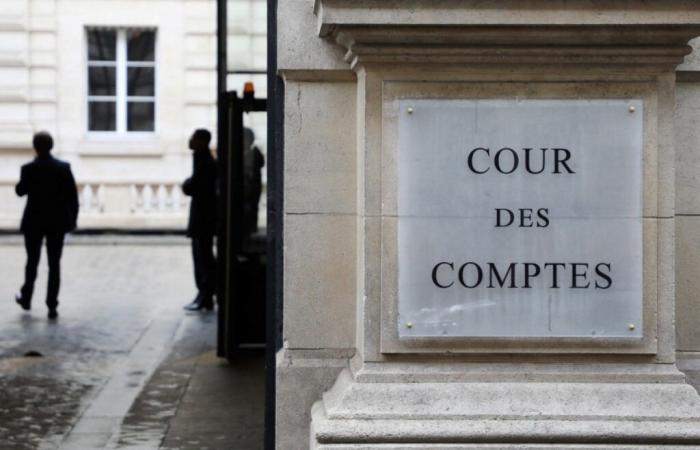
The major shift undertaken by the authorities to modernize the declaration of owners' real estate has not been done without hiccups. A report quantifies the significant financial impact for the State, called upon to assume a series of delays whose amount exceeds one billion euros.
(illustration) ( AFP / LUDOVIC MARIN )
“Faulty management”, “incomprehension of taxpayers”… In a report published Thursday January 23, the Court of Auditors drew up a harsh assessment of the major modernization project carried out by the tax administration, which led to undue taxes on “very heavy” financial consequences for state coffers.
Errors in the collection in 2023 of several taxes linked to real estate, such as the housing tax on second homes, have cost the State 1.3 billion euros, calculated the Court of Auditors.
In 2023, after the housing tax on the main residence was abolished, owners were invited to check the occupancy status of their properties on a state application,
“Manage my real estate” (GMBI),
to possibly pay certain remaining taxes, such as the housing tax on second homes or the tax on vacant housing.
But “the technical deployment” of this application “took place in particularly difficult conditions, since more than a million taxpayers were wrongly imposed the housing tax or the tax on vacant housing” , noted the Court of Auditors. This forced the administration to
“to grant very significant reductions, amounting to more than 1.3 billion euros”, calculated the Court of Auditors.
However, if these taxes are collected by the State mainly for the benefit of local authorities, it is the State alone which bears the cost of these reliefs.
This loss represented 34% of the proceeds of the three taxes concerned, –
the housing tax on second homes, the housing tax on vacant housing and the tax on vacant housing-,
in 2023.
The Court of Auditors attributes these hiccups during the declaration campaign in particular to “taxpayers' misunderstanding of what was being asked of them”. Many owners did not understand why they had to complete a declaration on an application when the housing tax on the main residence had been abolished, explains the Court of Auditors.
A tool for tax audits?
Despite several postponements of the campaign end date, only 73.1% of owners had correctly provided their information at the end of the campaign. “In a very difficult financial context for public finances,
all efforts must be made to ensure that a loss of this magnitude does not happen again in 2024.”
writes the Court of Auditors in its report. The GMBI application “does not contribute sufficiently to the necessary improvement of knowledge of housing data”, it is noted in the report.
The Court of Auditors is also considering an extension of the use of the tool for tax action. “In the medium term, more comprehensive discussions should be undertaken on the contribution of GMBI to other public policies or for related uses specific to the professions of the DGFiP, for example for tax audits”, judges the Court of Auditors .
Developed over more than five years before being launched, the GMBI application also “suffered from inadequate governance and management which led to significant budgetary drift”, noted the Court of Auditors. The system cost at least 56.4 million euros, from its development to its deployment.





